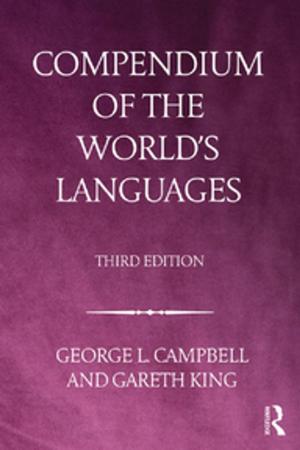The Virtual American Empire
On War, Faith and Power
Nonfiction, Social & Cultural Studies, Political Science| Author: | ISBN: | 9781351297981 | |
| Publisher: | Taylor and Francis | Publication: | September 8, 2017 |
| Imprint: | Routledge | Language: | English |
| Author: | |
| ISBN: | 9781351297981 |
| Publisher: | Taylor and Francis |
| Publication: | September 8, 2017 |
| Imprint: | Routledge |
| Language: | English |
This is Edward Luttwak's third and arguably fi nest collection of essays. In a challenge to the intellectual backbone of those who write about peace as something one wishes into existence through mediation and good will, Luttwak's view of warfare is bracing: "An unpleasant truth, often overlooked, is that although war is a great evil, it does have a great virtue: it can resolve political confl icts and lead to peace."
Luttwak articulates positions shared by military fi gures and political heroes who have their feet on the ground rather than in the sand. He shares his thoughts in essays covering America at war and the new Bolshevism in Russia, ranging in place from the Middle East to Latin America and stops along the way to Byzantium. Luttwak examines military reform, great powers grown small, and drugs, crime and corruption as part of the common culture of the West. Th ough his message is sometimes delivered in a light tone, he is never foolish and never trivial.
Luttwak develops the bracing thesis that cease fi res and armistices in states of war, while sometimes inconclusive, are lesser evils than prospects for a nuclear meltdown. Even in arenas of geopolitical antagonism, neither Americans nor Russians have been inclined to intervene competitively in wars of lesser powers. As a consequence, intermittent war persists; and greater dangers to the world are averted. It is no exaggeration to compare Luttwak to Clausewitz in the nineteenth century and Herman Kahn in the twentieth century. Th is volume deserves to be read and digested by all who would understand contemporary geopolitics.
This is Edward Luttwak's third and arguably fi nest collection of essays. In a challenge to the intellectual backbone of those who write about peace as something one wishes into existence through mediation and good will, Luttwak's view of warfare is bracing: "An unpleasant truth, often overlooked, is that although war is a great evil, it does have a great virtue: it can resolve political confl icts and lead to peace."
Luttwak articulates positions shared by military fi gures and political heroes who have their feet on the ground rather than in the sand. He shares his thoughts in essays covering America at war and the new Bolshevism in Russia, ranging in place from the Middle East to Latin America and stops along the way to Byzantium. Luttwak examines military reform, great powers grown small, and drugs, crime and corruption as part of the common culture of the West. Th ough his message is sometimes delivered in a light tone, he is never foolish and never trivial.
Luttwak develops the bracing thesis that cease fi res and armistices in states of war, while sometimes inconclusive, are lesser evils than prospects for a nuclear meltdown. Even in arenas of geopolitical antagonism, neither Americans nor Russians have been inclined to intervene competitively in wars of lesser powers. As a consequence, intermittent war persists; and greater dangers to the world are averted. It is no exaggeration to compare Luttwak to Clausewitz in the nineteenth century and Herman Kahn in the twentieth century. Th is volume deserves to be read and digested by all who would understand contemporary geopolitics.















